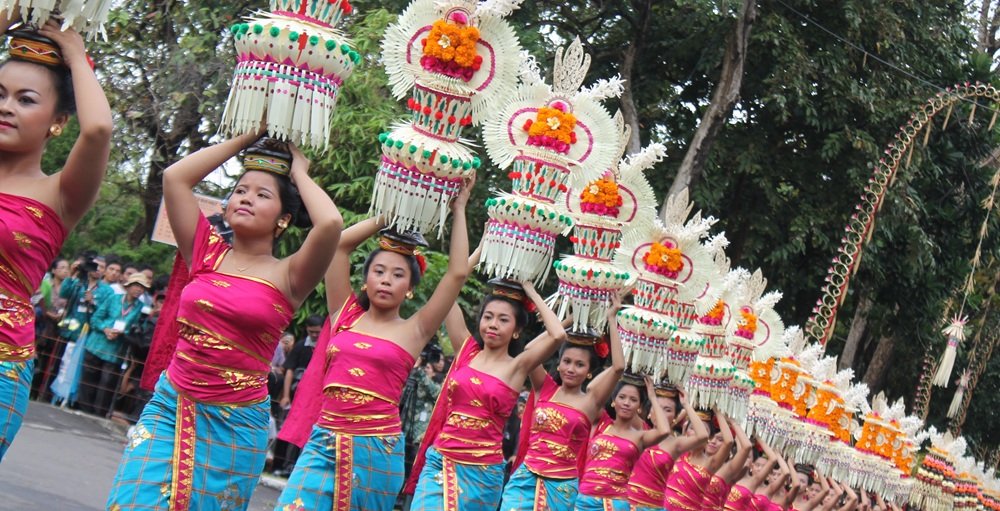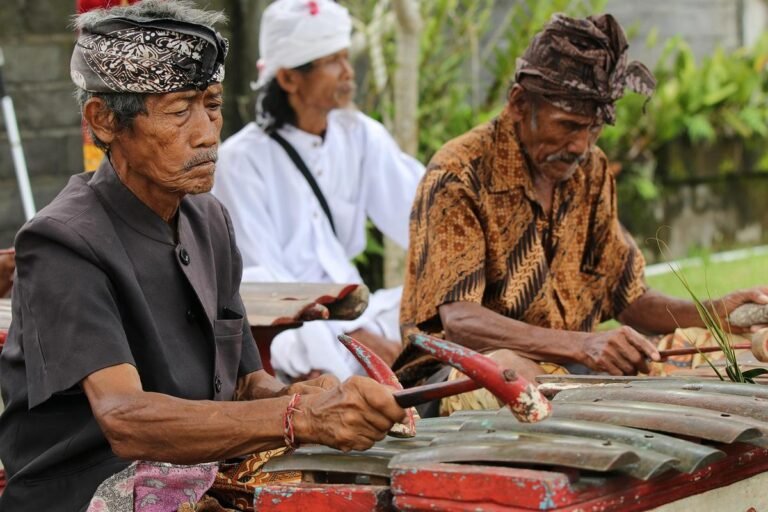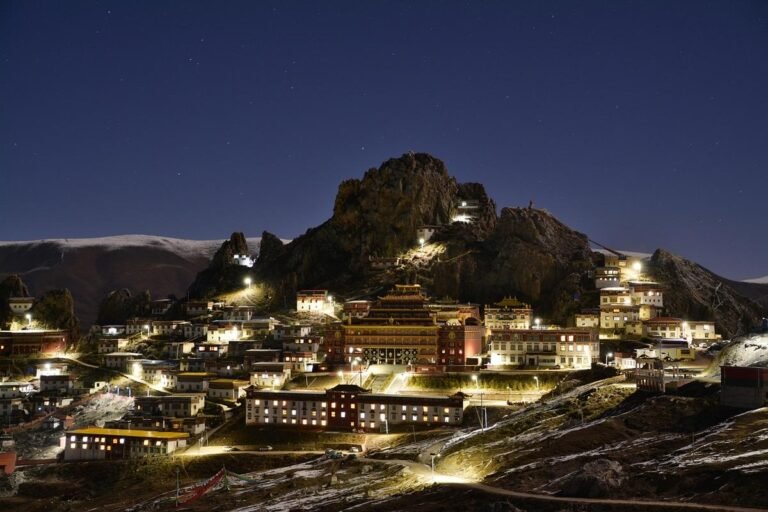10 Traditional Balinese Cultural Activities in Ubud: Delight
Ever dreamed of slipping into a shimmering barong mask (the traditional lion-faced costume) as firelight dances and chants echo around you? Picture the warm tang of lime on fresh coconut rice (rice cooked in rich coconut milk). And the soft clap of water at Tirta Empul (the sacred spring temple).
In Ubud, every moment hums with age-old art and ritual. Little wonders pop up in the smallest details.
We’ve rounded up ten time-honored Balinese rituals, tiny delights that will linger in your heart long after you leave. Ready to join a gamelan orchestra (Bali’s traditional percussion band), craft a canang sari offering (daily flower prayer), paint batik cloth and more?
Top Traditional Balinese Cultural Activities in Ubud
Imagine you’re sinking onto a carved bench at Ubud Palace just as the first gamelan gong (traditional Balinese orchestra) murmurs through the leafy courtyard. Legong dancers in shimmering gold skirts tell royal tales with soft hand movements. Barong warriors wear glittering masks that glow in the last light. And at 7:30 pm, Kecak’s fire-lit chorus rises in a circle of chanting men. The show lasts about 1 to 1.5 hours and tickets are 100,000 IDR.
Ever dreamed of striking that first gong yourself? A gamelan workshop (90–120 minutes, 200,000–300,000 IDR) hands you a mallet and shows you how each mellow note comes to life. You’ll feel the wood warm under your fingertips.
Batik painting (wax-resist cloth art) is next. Friendly Ubud artists guide you through each wax drawing and colorful dye dip. It takes about two hours and locals ask for a 50,000 IDR donation.
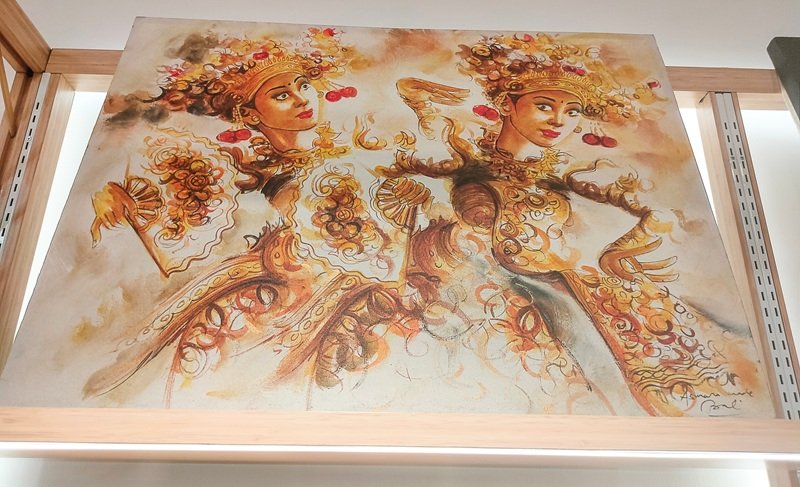
Then there’s a canang sari session (daily Balinese offering). You’ll learn how each flower petal and tiny stick has meaning, folding hope into every little basket. It’s a quiet hour of mindful craft.
One more scoop. Oops, my personal fave is the cooking class at Bali Farm Cooking School. You wander through a home garden (3–4 hours, 450,000 IDR), pluck fresh herbs, and whip up six dishes from farm to table. You’ll taste the tang of lime and sweet coconut rice long after you’ve left.
Next, in the soft morning light, head to Tirta Empul for a melukat purification ritual (water purification ritual) at the sacred spring. Entry is 50,000 IDR and sarongs are 10,000 IDR. Locals slip under cool fountains around 7 am to wash away noise and tension. You’ll hear water’s gentle clap and feel it clear your mind.
By the way, if you’re an early bird, Goa Gajah (Elephant Cave) awaits. Carved faces peer from the rock beside a shady lotus pond and waterfall. It’s 15,000 IDR to enter.
Right here. I love Pura Gunung Kawi. You descend 300 steps past ancient palms to cliff-carved royal tombs. It’s 50,000 IDR including sarong. Breathe in the mossy air.
These simple rituals and temple stops set a gentle rhythm for your day. Planning feels as easy as wandering through emerald rice terraces (stepped fields that glow at sunrise). Pure bliss.

Traditional Balinese Dance and Gamelan Sessions in Ubud
Close your eyes and hear gamelan gongs (traditional Indonesian percussion ensemble) softly murmur as dancers glide under lantern light. At Ubud Palace you’ll find the royal Legong dance (a graceful, precision dance) and the spirited Barong dance (a playful epic of good and evil) every night at 7:30 pm. Tranquility. Pure magic.
By the way, at Uluwatu cliff you can watch the Kecak fire dance (a chant-and-flame performance) at 6:00 pm or 7:00 pm. Ever imagined going behind the scenes? You can join a 90–120 minute gamelan workshop (hands-on music class) at a nearby studio. Your inner musician awaits.
| Experience | Venue | Time | Duration | Cost |
|---|---|---|---|---|
| Legong Dance | Ubud Palace | 7:30 pm | 1 hr | 100,000 IDR |
| Barong Dance | Ubud Palace | 7:30 pm | 1.5 hr | 100,000 IDR |
| Kecak Fire Dance | Uluwatu | 6:00 pm & 7:00 pm | 1 hr | 150,000 IDR |
| Gamelan Workshop | Local Studio | Flexible | 90–120 min | 200,000–300,000 IDR |
Pure delight. Barong’s mask towers over the stage with fluffy white fur and sparkling beadwork. You feel the drumbeats pulse through your chest as dancers battle Rangda’s dark magic. See the table above for showtimes and ticket prices.
Hands-On Balinese Handicraft Workshops in Ubud
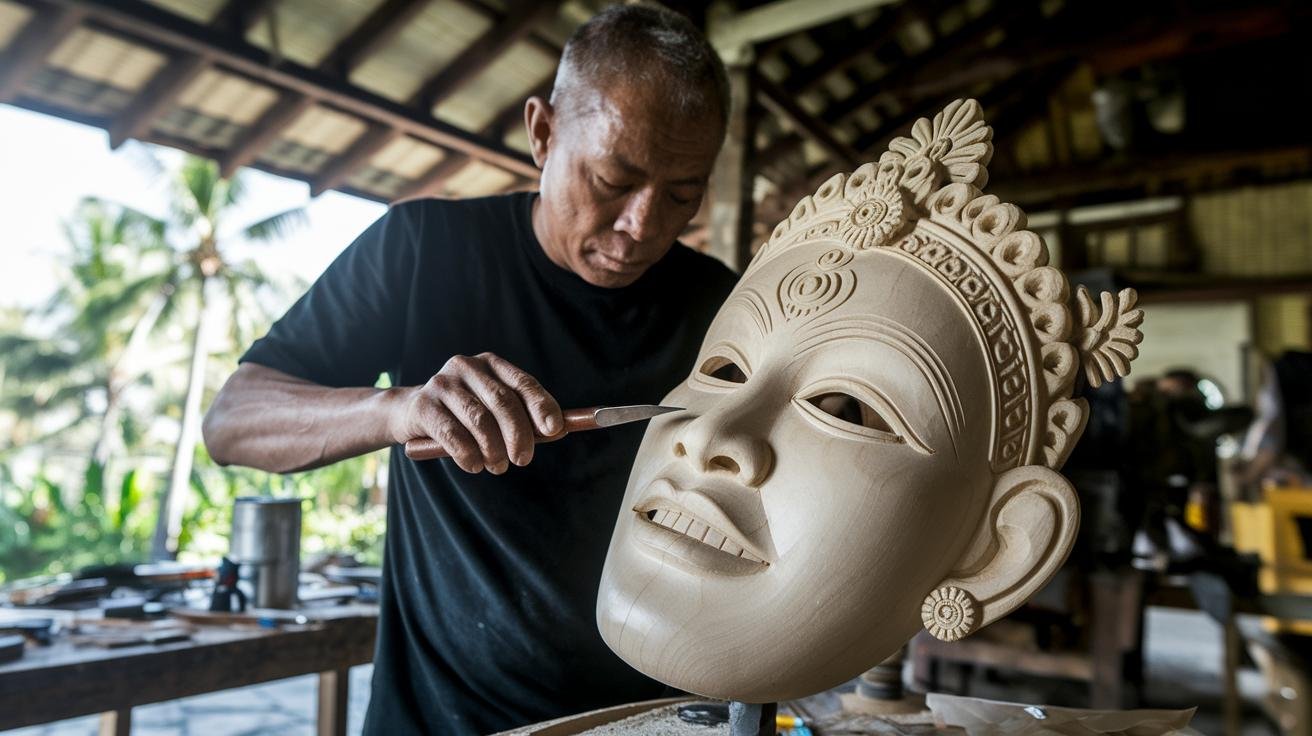
Tucked away in Mas village (just a short ride from Ubud), local woodcarvers share secrets passed down for generations. At Mas studios, you can join a mask carving workshop that lasts two to three hours. You’ll sand and carve zebu wood (a dense Indonesian hardwood) under a master’s gentle guidance. Sessions run 150,000–250,000 IDR and include all materials. Breathe in fresh sawdust. Hear the soft whisper of carving tools against wood. Ever wondered how it feels to carve your own mask?
Right next door, another wood carving lesson invites you to shape a small panel or figurine. In two hours, you’ll learn basic knife grips and simple relief patterns. Tools are provided, and you get to take home your own hand-carved keepsake, grains and knots revealed by your own hands. Pure joy.
For a burst of color, head to batik painting sessions in nearby Batuan. You’ll draw flowing motifs with hot wax, then dip and rinse fabrics in buckets of dye, midnight blue, sunset orange, emerald green. Each Batik painting workshop lasts about two hours and costs 100,000–200,000 IDR. Feel the warm wax slip over your fingers, oops, cool on the skin, then peel it away to reveal crisp, colorful patterns. If you’re wondering where to take Balinese batik workshop in Ubud, I always point to a quiet studio tucked just off the main road.
Next, over by Pura Gunung Kawi (an ancient rock-cut temple complex), a stone sculpting tour offers a one-hour demo. Watch carvers chip volcanic stone (with mica flecks that sparkle) into mythic figures, then try a chisel yourself. You might feel cool stone dust on your palms as you work. A small donation of 50,000 IDR keeps the temple grounds humming. Timeless craft.
Sacred Ceremonies and Temple Tours Around Ubud
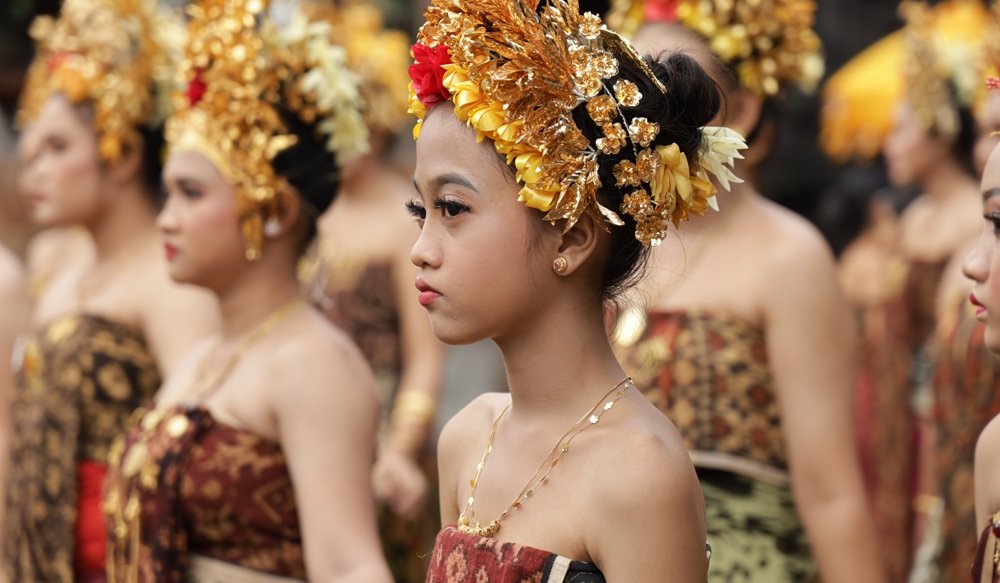
Ever dreamed of letting clear water wash away your worries? Try the melukat purification ritual at Tirta Empul. Slip into a bright ceremonial sarong (a traditional wrap) for 10,000 IDR, then step into the cool spring fountains. It’s about 50,000 IDR to enter, and you can hire a guide for 100,000 IDR to whisper the meaning behind each offering. Best around 7–8 am when the air feels crisp and the water’s gentle clap is like a soft hello.
Pure calm.
Next, wander over to Goa Gajah. Ancient Elephant Cave carvings (stone faces hewn into the cave wall) stand beside a shaded lotus pond (pink blooms drifting) and a tiny waterfall. Entrance is just 15,000 IDR. You’ll feel history settle in with the soft rustle of leaves overhead.
By the way, Pura Gunung Kawi waits a bit off the beaten path. Descend about 300 mossy steps to find cliff-carved royal tombs (rock-hewn shrines). Your 50,000 IDR ticket even includes a sarong (in case you need one). And don’t miss Saraswati Temple’s free lotus-framed courtyard (open 9 am–5 pm). Afternoon light dances on gentle fountains.
Balinese Culinary Arts & Tasting Experiences
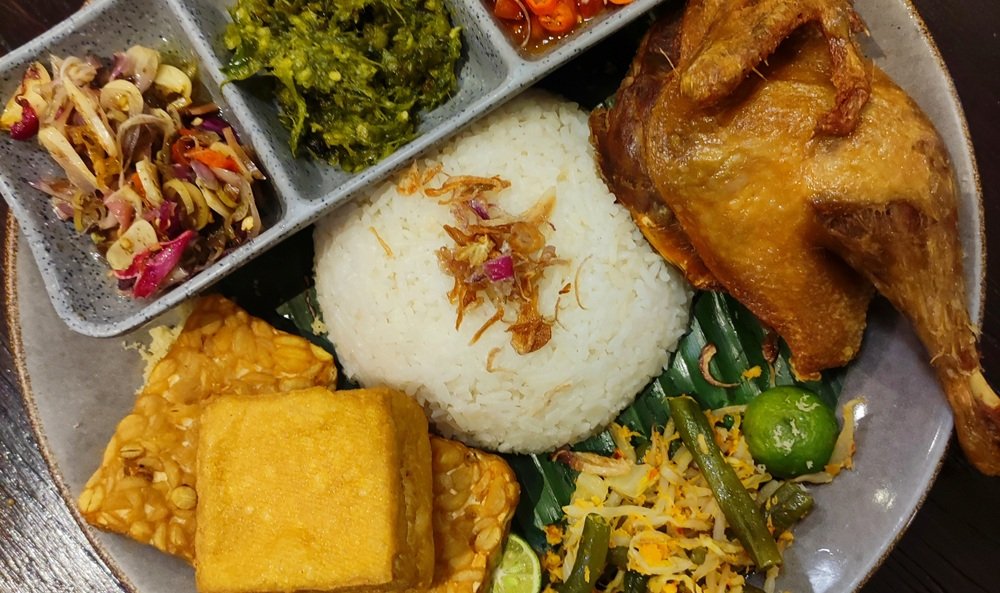
Ever dreamed of grinding your own spice paste while feeling the warm Bali breeze on your skin? Our Bali Farm Cooking School classes in Ubud include a handy recipe booklet (so you can recreate every dish later) and easy pick-up and drop-off. You’ll feel like a local in no time.
Spice Paste Preparation Class
Join us for 1–2 hours of hands-on fun:
- Duration: 1–2 hours
- Cost: 150,000 IDR
- Grind turmeric (golden root with peppery zing), galangal (citrusy ginger cousin), and candlenut (a creamy, rich nut) in a stone mortar (traditional grinding bowl)
- Breathe in the earthy aroma as each root releases its vibrant flavor
Pure bliss.
Coffee Plantation & Kopi Luwak Tasting
Next, we’ll whisk you away to mist-kissed arabica hills:
- Cost: 100,000–150,000 IDR
- Walk among coffee trees where cherries glow ruby red
- Watch beans roast over wood fires (listen for the gentle crackle)
- Sip velvety Kopi luwak (coffee from civet-digested beans) alongside other local brews
- Pair each cup with buttery Balinese cakes at Sananda Café
Tranquility in a cup, right here.
Cultural Immersion in Ubud’s Villages and Markets
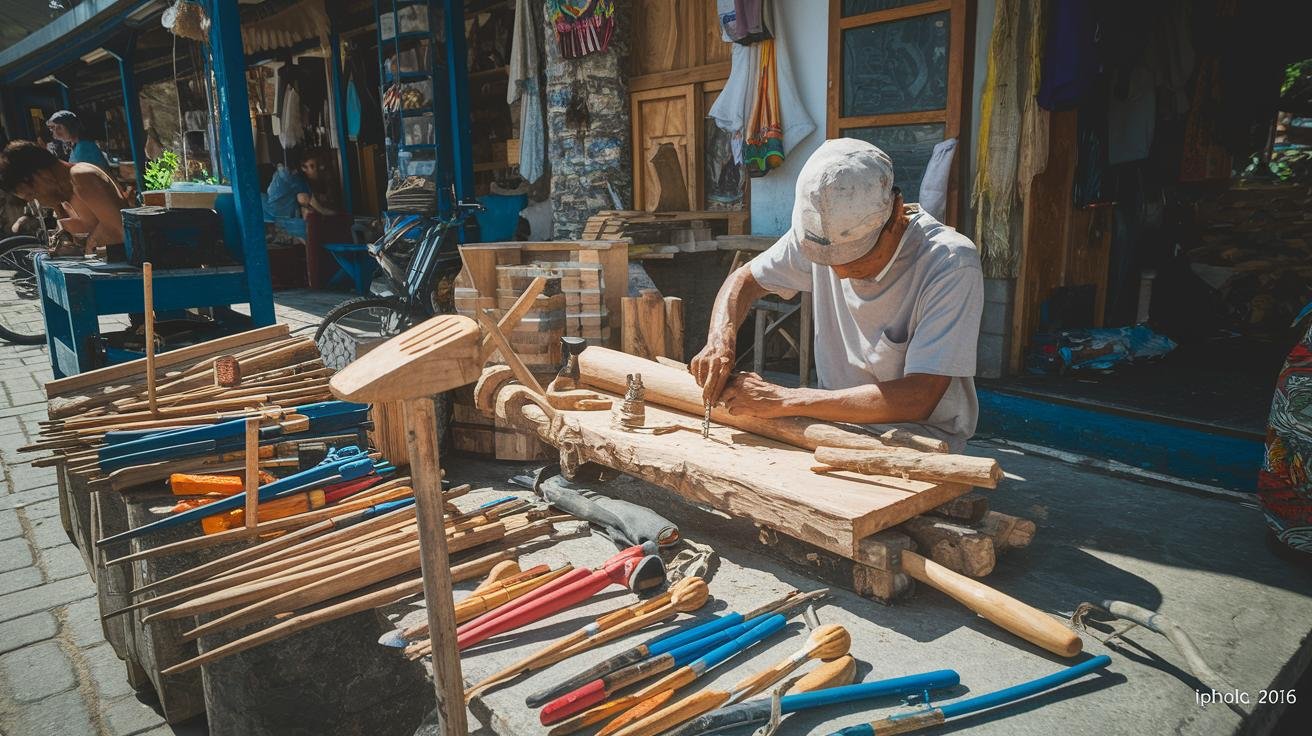
Ever dreamt of slipping into Ubud’s Art Market at first light? From 8 am to 6 pm, you’ll catch the soft hum of island life. Bright batik scarves (hand-dyed cloth) sway overhead. Handcrafted jewelry glints in the warm sun. Grab small bills, flash a friendly grin, and practice your haggling skills. Oh, and parking? Just a few thousand rupiah for your motorbike, right next door.
Next, wander to Mas village for an artisan walk (2 to 3 hours, 200,000 IDR). Sand and carve zebu wood alongside master carvers who’ve honed their craft for generations. The scent of fresh wood dust is, I guess, strangely comforting.
Then hop on a bike for a rice field tour (2 hours, 150,000 IDR). Pedal through emerald rice terraces (stepped fields that glow emerald at sunrise) and let the breeze cool your skin. Feeling playful? Roll up your pants and plant tiny rice seedlings in the wet furrows.
Up on the Tegalalang ridge, a 20,000 IDR ticket lets you wander those famous steps. Fancy a thrill? Try the Bali swing, it’ll send your heart racing as you soar above the valley.
By the way, for a truly local vibe, stay overnight with a Balinese family (500,000 IDR). Share home-cooked meals, join a tiny temple ceremony, and wake to the crow of roosters. Pure tranquility. Right here.
Booking Tips and Logistics for Ubud Cultural Activities
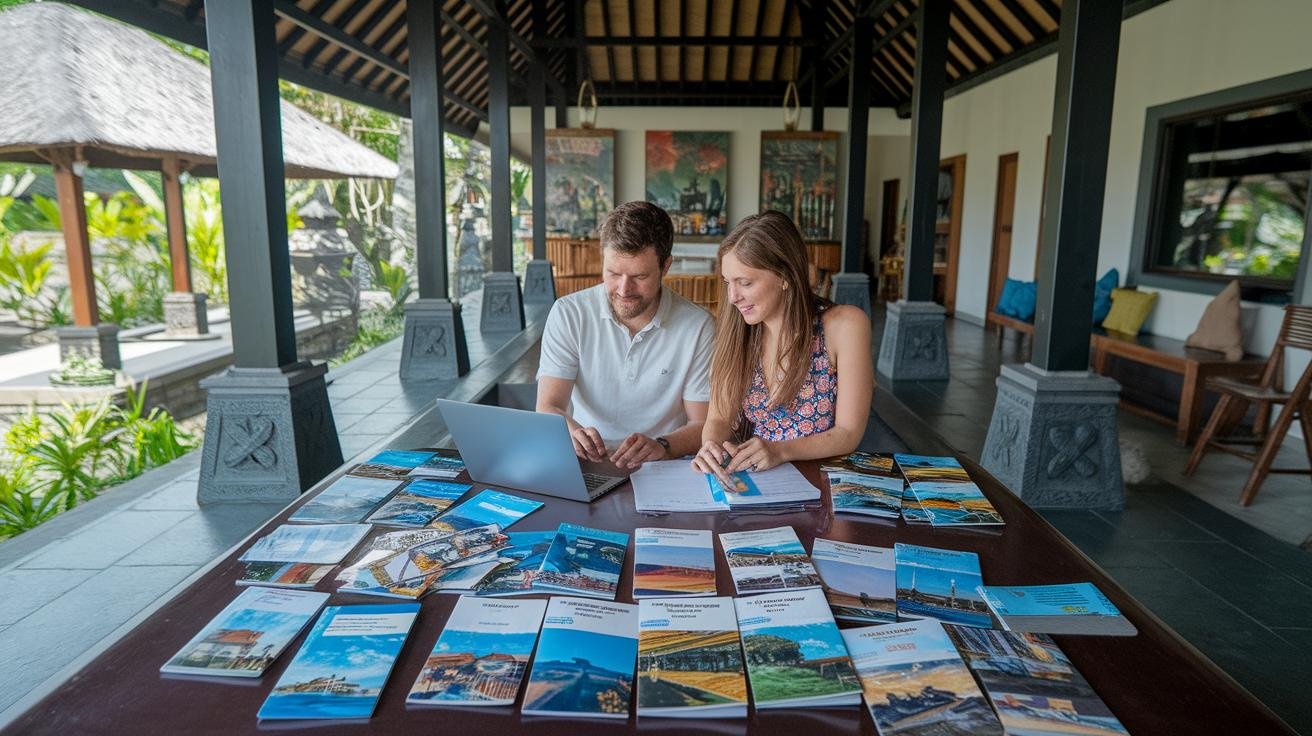
Plotting a day of Ubud (cultural heart of Bali) adventures? It’s best to sketch your plan early. Lean on your villa concierge to handle the rides.
A private driver means you won’t weave through scooter traffic on narrow jungle roads. You can even bundle one when you learn how to book a private villa in Bali. Think of it as your personal Bali road trip guide.
Next, lock in dance tickets well before showtime, ask your concierge or pop over to the Ubud Palace box office. That way you’re not scrambling for seats at the last minute.
Workshop hosts often offer group rates for three or more guests, so don’t forget to ask. Peak season (June through Sept) fills up fast, try to book at least two weeks ahead. In the off-season, you’ll find lighter crowds and friendlier fees.
Give yourself 30 to 45 minutes to travel between spots. Mix performances, hands-on workshops, and temple visits into one balanced day. And for a few simple tips on modest dress and soft voices, peek at a Cultural etiquette guide for Ubud.
Here’s a sample one-day schedule:
- 7:00 am – Melukat purification at Tirta Empul (50,000 IDR entry, 10,000 IDR sarong; water blessing ritual at a holy spring)
- 9:00 am – Explore Goa Gajah (15,000 IDR; “Elephant Cave,” an 11th-century stone sanctuary)
- 11:00 am – Batik painting workshop (2-hour, 100,000 IDR group rate; traditional fabric art)
- 2:00 pm – Spice paste class (1-hour, 150,000 IDR; learn to mix local spice pastes)
- 4:30 pm – Coffee tasting at Sananda Café (100,000–150,000 IDR; sip Bali’s famous beans)
- 6:30 pm – Pre-booked Legong dance at Ubud Palace (7:30 pm start, 100,000 IDR; classical Balinese dance)
Traditional Balinese Cultural Activities in a Nut Shell
Jump right into the vibrant rhythms of Legong, Barong and Kecak performances. Try your hand at gamelan workshops, batik painting and canang sari sessions, each brings Bali’s living traditions to life.
Then cleanse your spirit with melukat at Tirta Empul and wander through Goa Gajah, Gunung Kawi and Saraswati Temple. You’ve got clear timing, fees and insider tips all in one spot.
Everything’s lined up so your plan flows from sunrise to sunset. Ready for traditional Balinese cultural activities in Ubud? Pure bliss awaits.
FAQ
What are some non-touristy activities in Ubud?
Non-touristy activities in Ubud include wandering hidden rice terraces (stepped emerald fields) at sunrise, joining a local batik painting workshop, sampling roadside warung (small eatery) dishes, and chatting with artisan woodcarvers in secluded Mas Village.
What free things can you do in Ubud?
Free things in Ubud include strolling Ubud Art Market, watching sunset at Campuhan Ridge Walk, exploring Saraswati Temple’s lotus pond, and hiking local trails while listening to morning birdcalls.
What activities are available at night in Ubud?
Activities at night in Ubud include attending a Kecak fire dance (chanting circle) under starlit skies, savoring live gamelan music (traditional percussion) at Ubud Palace, and sipping herbal tea at moonlit yoga sessions in intimate studios.
What things can families enjoy in Ubud?
Families in Ubud can enjoy a rice terrace cycling tour, a fun batik painting session, feeding koi at Tirta Empul temple, and sharing a floating breakfast with warm coconut aroma in your private villa pool.
What are the best things to do in Ubud for one day?
The best one-day Ubud itinerary includes sunrise at Campuhan Ridge Walk (river ridge path), a morning gamelan workshop (percussion session), lunch overlooking rice terraces (stepped fields), afternoon temple tour, and an evening Legong dance performance (royal ballet) at Ubud Palace.
What is special about Ubud’s spiritual side?
Ubud’s spiritual side shines through daily canang sari offerings (flower blessings) at every shrine, dawn yoga among swaying palms, melukat purification (water blessings) at Tirta Empul temple, and serene ceremonies echoing gentle gamelan music (traditional percussion).
What is the traditional culture of Bali and how can I try it in Ubud?
The traditional culture of Bali centers on Hindu rituals, dance, and gamelan music (percussion arts). In Ubud you can join a kecak fire show (chanting circle), try batik painting (wax-resist art), take cooking classes, make canang sari offerings (flower blessings).

